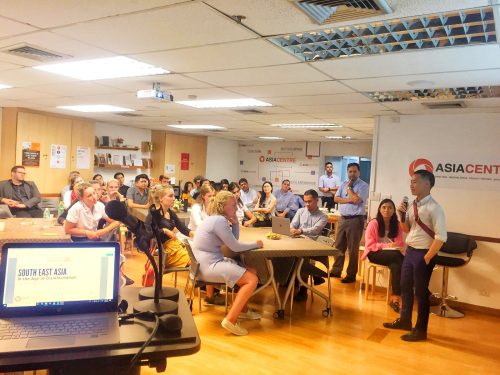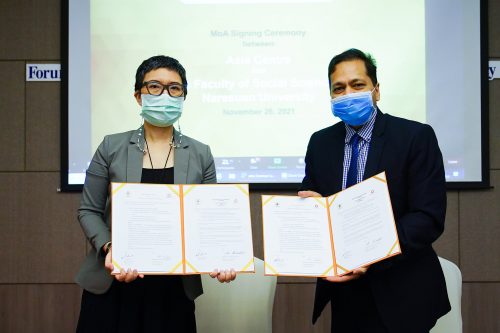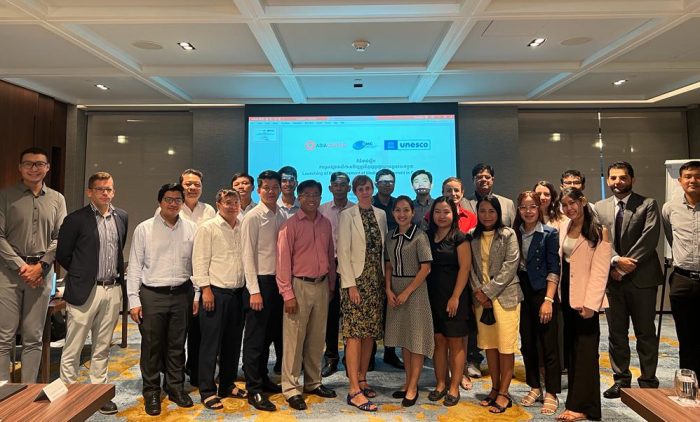
On 3 February 2023, Asia Centre’s Dr. James Gomez presented the research plan for the project “Assessment of Media Development in Cambodia” to officials from the Royal Government of Cambodia, representatives and journalists from media organisations and representatives of civil society organisations who are part of a National Steering Committee (NSC) set up to support the assessment effort.
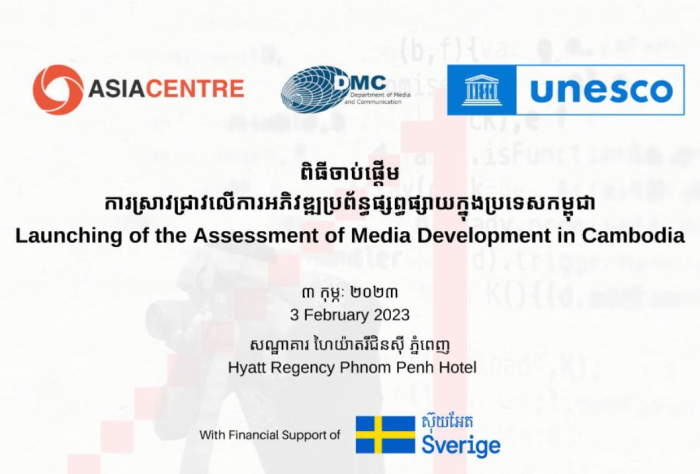
The Assessment, led by Asia Centre, is being undertaken in partnership with the UNESCO Office in Phnom Penh and the Department of Media and Communication (DMC) of the Royal University of Phnom Penh (RUPP). It is an evaluation of Cambodia’s media development landscape that examines the legal framework and challenges media professionals face in their day-to-day tasks. The Assessment is supported by the Swedish International Development Cooperation Agency (SIDA).
Asia Centre will apply UNESCO’s Media Development Indicators (MDIs) for the assessment. The MDIs were developed to provide a framework to evaluate the role media contributes in good governance and the democratic development of a country. There are 50 indicators and hundreds of sub-indicators arranged into five categories that take into account all aspects of the media development environment. The five categories are (1) the system of media-related regulation; (2) the plurality and diversity of the media sector; (3) the role of media as a platform for democratic discourse; (4) professional capacity building and supporting institutions for media professionals; and (5) infrastructural capacities.
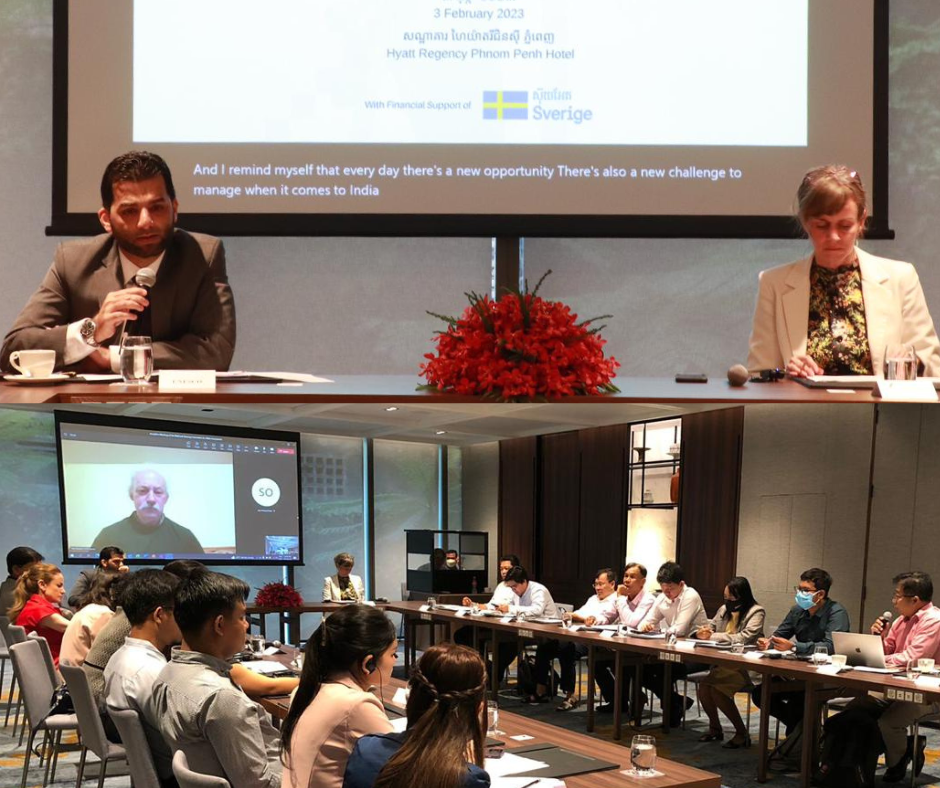
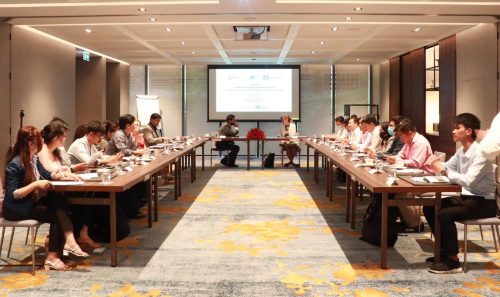
Convened at the Hyatt Regency Phnom Penh Hotel, participants of the “Inception Meeting of the NSC” were welcomed by Sardar Umar Alam, UNESCO Representative to Cambodia and Camilla M. Ottosson, Minister Counsellor and Head of Section Office, Embassy of Sweden in Phnom Penh. This was followed by a presentation on the UNESCO Media Development Indicators by Toby Medel, Executive Director, Centre for Law and Democracy.
As the Lead Expert for the project, Dr. Gomez presented the research approach and work plan, including the significance of the MDI assessment in Cambodia and past Centre expertise and experience working on related issues in Cambodia and the region. Asia Centre’s MDIs Assessment for Cambodia builds on its previous media-related work on Cambodia. This includes Asia Centre’s baseline study Internet Freedoms in Cambodia: A Gateway to Control, an interview piece “Journalists’ Freedoms Can Be Re-Ignited” (March 2022) and an op-ed “Data Protection Can Address Online Self-Censorship” (September 2019) for Cambodianess, among many more. The Centre has also made an oral statement to the UN Human Rights Council (2022) on the human rights situation in Cambodia based on its evidence-based research.
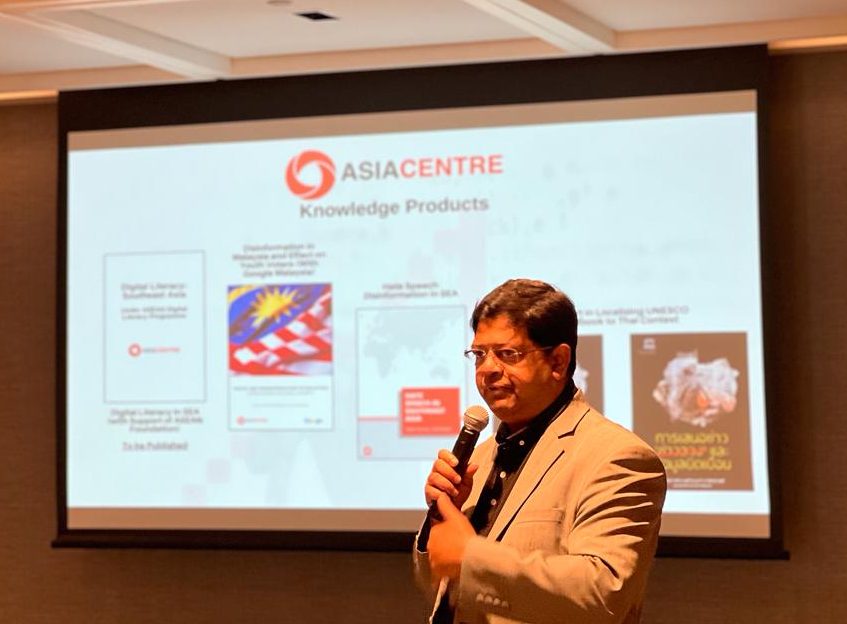
Following the presentation of the research plan, Asia Centre will commence research for the assessment. This includes initial desk research and will be followed by fieldwork in Cambodia – surveys conducted among the Cambodian public, interviews with key informants in the country’s media sectors and a number of focus group discussions with relevant stakeholders. The report will be launched in late 2023.
As cooperation with Cambodian partners is essential in the Centre’s projects in the country, the Centre has also initiated a series of MoUs to collaborate on research outputs and capacity-building in Cambodia. Cambodian organisations with whom the Asia Centre is in discussion include the Cambodian Journalist Alliance Association (CamboJA), the Cambodian Center for Independent Media (CCIM), and Transparency International Cambodia.
Asia Centre is a civil society research institute in Special Consultative Status with the United Nations Economic and Social Council. It serves as a knowledge partner and undertakes evidence-based research as well as provides capacity-building training for end beneficiaries. If you would like to collaborate with the Centre, please send an expression of interest to contact@asiacentre.org.

